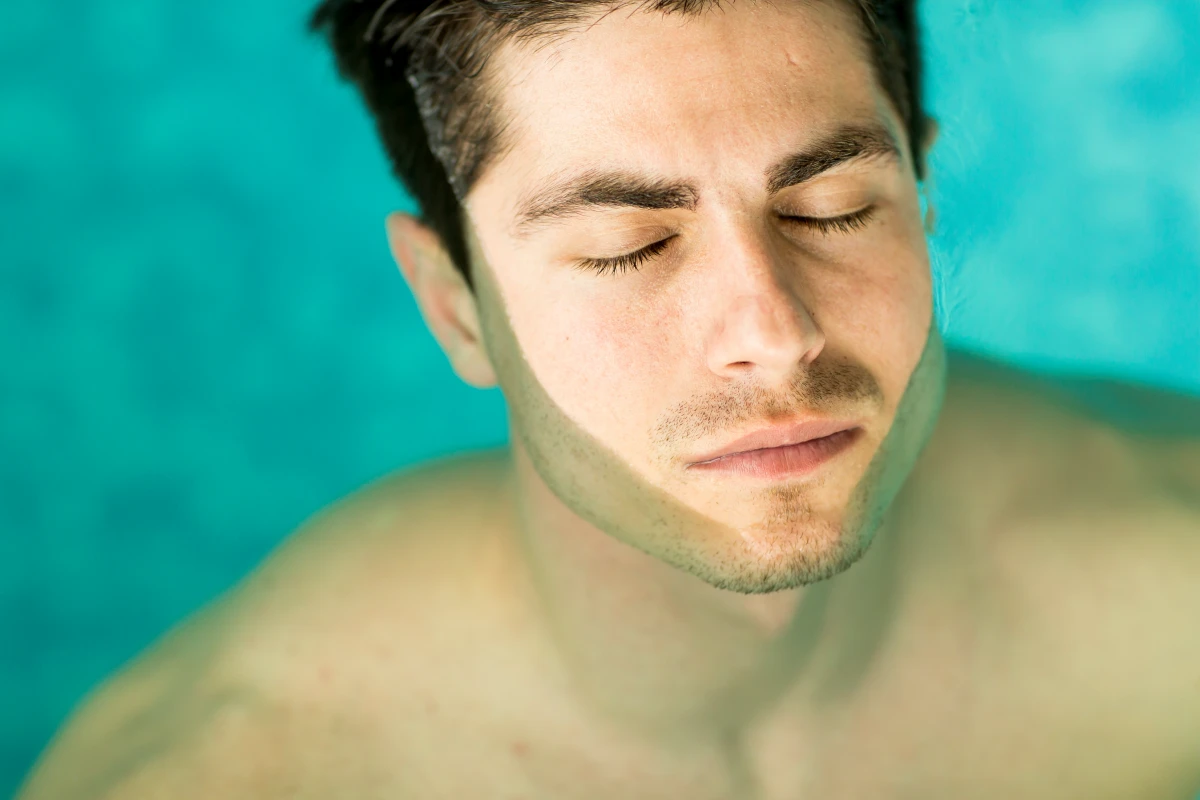When most people think about swimming, they picture a full-body workout that tones muscles, burns calories, and improves endurance. But there’s far more to it than that. Swimming is not only a fantastic way to stay physically fit — it’s also a proven method to support mental wellbeing.
Whether you’re gliding through the water on a calm morning or pushing through laps after a long day, swimming offers a unique blend of movement, mindfulness, and motivation. It’s an escape from daily stress and a chance to reconnect with yourself — body and mind working together in perfect rhythm.

1. The Physical Benefits: A Low-Impact, High-Reward Workout
Swimming engages nearly every muscle group in the body while putting minimal stress on your joints. Unlike high-impact exercises such as running or weightlifting, the water supports your body weight, reducing the risk of injury.
Full-Body Strength and Endurance
Each stroke you take works your arms, shoulders, back, core, and legs. The resistance of the water provides natural strength training — you’re essentially performing a workout with constant resistance in every direction.
Improved Cardiovascular Health
Swimming strengthens the heart and lungs. Regular sessions can lower blood pressure, improve circulation, and enhance your overall endurance. This makes swimming an excellent form of cross-training for athletes, as well as a sustainable option for anyone wanting long-term fitness.
Better Flexibility and Balance
Because swimming requires a wide range of motion, it promotes flexibility in your joints and muscles. The constant stabilising work your core does to maintain balance also translates to better posture and coordination on land.
2. The Mental Benefits: Why Swimming Is Good for Your Mind
This is where swimming truly stands out. The benefits of swimming for mental health are supported by numerous studies and, more importantly, by personal experience from swimmers around the world.
Reduces Stress and Anxiety
The rhythm of your breathing, the repetitive strokes, and the gentle sound of water all combine to create a calming, almost meditative experience. Swimming triggers the release of endorphins — your body’s natural mood boosters — and helps lower cortisol levels, which are associated with stress.
Many swimmers find that even 30 minutes in the pool can completely shift their mood, offering a sense of clarity and calm that lasts long after they’ve dried off.
Improves Sleep Quality
Regular swimming can help regulate your sleep patterns. The combination of physical exertion and relaxation after swimming makes it easier to fall asleep and achieve deeper, more restorative rest.
Boosts Focus and Mental Clarity
When you’re swimming, distractions fade away. The pool becomes your space to think, breathe, and reset. This “flow state” can enhance focus, creativity, and decision-making — making you mentally sharper outside the pool too.
Supports Emotional Resilience
Swimming teaches patience and persistence. Every lap builds a sense of accomplishment. Over time, this process strengthens emotional resilience and self-belief — qualities that carry over into everyday life.
3. The Science Behind the Mind–Body Connection
Researchers have found that swimming increases blood flow to the brain, supporting cognitive function and memory. It can also stimulate the growth of new brain cells, particularly in the hippocampus — an area linked to emotions and learning.

Additionally, the breathing control required in swimming encourages better oxygen exchange and activates the body’s relaxation response. This is similar to the effect of deep-breathing exercises often used in meditation or yoga.
Simply put: swimming doesn’t just strengthen your body — it rewires your brain for calmness, focus, and positivity.
4. Motivation in Motion: How to Stay Inspired
Even the most enthusiastic swimmers occasionally struggle with motivation. The key is to focus on progress rather than perfection.
Set Small, Achievable Goals
Start with manageable targets — like swimming for 20 minutes without stopping or mastering a new stroke. These small wins build momentum and confidence.
Track Your Progress
Recording your sessions or noting how you feel after each swim helps you see patterns of improvement. Over time, you’ll notice not only physical gains but also mental clarity and emotional balance.
Vary Your Routine
Mixing up your sessions keeps things interesting. Try interval training one day, technique drills the next, and a relaxing recovery swim at the end of the week. Variety prevents boredom and keeps your motivation fresh.
Find a Supportive Environment
Swimming with others or under the guidance of an instructor can make a huge difference. The encouragement and structure help you stay consistent — and consistency is the foundation of lasting results.
5. Swimming as a Form of Mindfulness
Swimming naturally encourages mindfulness. The water isolates you from noise and distractions, creating a peaceful environment where you can focus solely on your breathing and movement.
Paying attention to each stroke, each breath, and how your body feels in the water helps you stay present in the moment. This meditative rhythm can reduce anxiety and enhance your sense of inner calm — a perfect antidote to modern stress.
If you ever feel overwhelmed, a few calm laps can act as a mental reset button.
6. How to Get Started (or Reignite Your Passion for Swimming)
If you’re new to swimming — or haven’t been in the water for a while — the best approach is to start gradually. Here’s how to ease in:
Begin with short sessions, around 20–30 minutes, and build up slowly.
Focus on technique first. Proper form makes swimming more efficient and enjoyable.
Work on your breathing. Learn to exhale underwater and inhale smoothly to maintain rhythm.
Warm up and cool down. Gentle stretching before and after helps prevent muscle tension.
Seek professional guidance. A few sessions with an experienced instructor can accelerate your progress and confidence dramatically.
7. Why Private Lessons Can Make All the Difference
Many people underestimate how much personal coaching can transform their swimming experience.
A private instructor can help you refine your technique, build a personalised training plan, and overcome specific fears or challenges in the water. Most importantly, it ensures you’re practising efficiently and safely — allowing you to enjoy all the physical and mental rewards swimming has to offer.
Conclusion: A Healthier, Happier You Starts in the Pool
The benefits of swimming for mental health go far beyond the obvious physical fitness gains. Swimming is a form of moving meditation — a place where your body and mind work together in harmony.
It builds strength, endurance, confidence, and calmness. Whether you’re chasing performance goals or simply looking to find balance in your life, swimming offers the perfect combination of challenge and peace.
So next time you step into the pool, remember: every stroke is an investment not just in your fitness, but in your happiness too.
Call to Action
If you’re ready to experience the full benefits of swimming for both body and mind, get in touch today. At Going Swimmingly London, I offer private swimming lessons tailored to your goals — whether you’re looking to build confidence, master technique, or simply enjoy a mindful workout.
Contact me today to start your journey towards a stronger, calmer, and more confident you.
